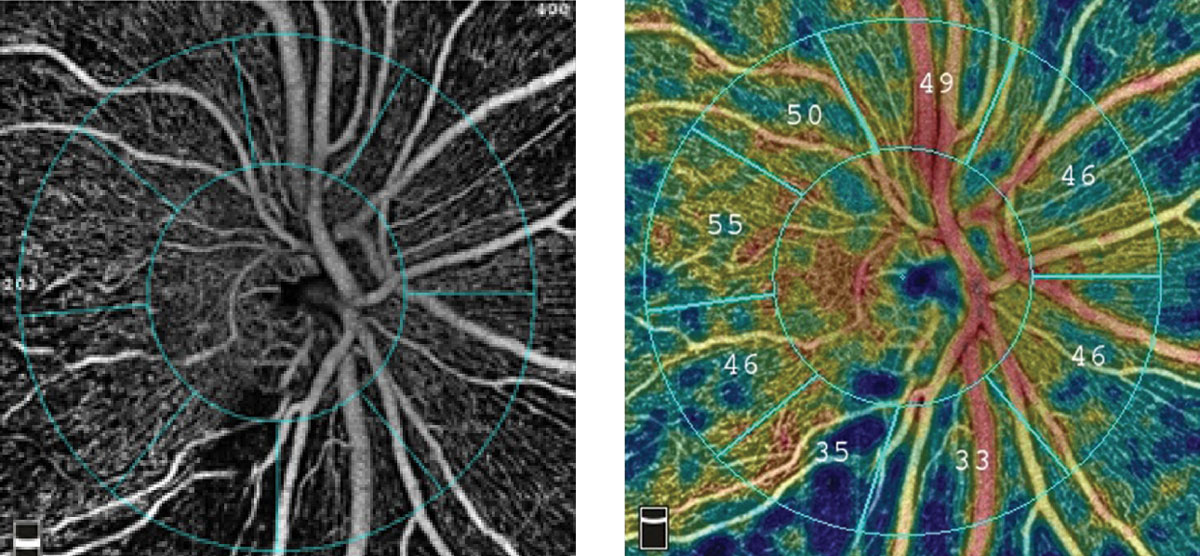 |
| Vascular dysregulation may contribute to both glaucoma and dementia by vasoconstriction and subsequent reduced blood flow. Photo: Visionix. Click image to enlarge. |
As a type of neuropathy, glaucoma has long been thought to have possible connections with cerebral neurodegenerative processes such as dementia. Recent findings from a large national cohort study in Sweden add to the body of evidence that there is indeed a connection.
The matched cohort (1995 to 2017) study included 324,730 patients diagnosed with glaucoma and 3.2 million age- and sex-matched controls without prior dementia. Together, this cohort had 16 million person-years of follow up. During that period, the researchers found that 10% of glaucoma patients and 7% of controls received dementia diagnoses.
Those with glaucoma had moderately increased risks for Alzheimer’s disease and all-cause dementia. Primary open-angle glaucoma and normal-tension glaucoma were associated with increased risk for Alzheimer’s disease and vascular dementia while primary angle-closure glaucoma was associated only with vascular dementia. No sex differences were noted. Risk increased for glaucoma patients ≥70 years, but not for those under 60.
Though the risk for dementia was moderate in glaucoma patients, this still represents a significant health impact, given that more than 76 million individuals worldwide have the condition. The researchers recommended in their Ophthalmology paper that “persons diagnosed with glaucoma may need increased monitoring for dementia symptoms to facilitate earlier detection and treatment.”
Crump C, Sundquist J, Sieh W, et al. Risk of Alzheimer’s disease and related dementias in persons with glaucoma: a national cohort study. Ophthalmology 2023. [Epub ahead of print]. |

